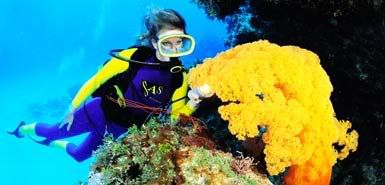Story provided by Jeremy0322. Thanks Jeremy!

The Great Barrier Reef will be so degraded by warming waters that it will be unrecognizable within 20 years, an eminent marine scientist has said.
Charlie Veron, former chief scientist of the Australian Institute of Marine Science, told The Times: “There is no way out, no loopholes. The Great Barrier Reef will be over within 20 years or so.”
Once carbon dioxide had hit the levels predicted for between 2030 and 2060, all coral reefs were doomed to extinction, he said. “They would be the world’s first global ecosystem to collapse. I have the backing of every coral reef scientist, every research organization. I’ve spoken to them all. This is critical. This is reality.”
For the complete article, please follow this link:
Great Barrier Reef will be gone in 20 years, says Charlie Veron - Times Online

The Great Barrier Reef will be so degraded by warming waters that it will be unrecognizable within 20 years, an eminent marine scientist has said.
Charlie Veron, former chief scientist of the Australian Institute of Marine Science, told The Times: “There is no way out, no loopholes. The Great Barrier Reef will be over within 20 years or so.”
Once carbon dioxide had hit the levels predicted for between 2030 and 2060, all coral reefs were doomed to extinction, he said. “They would be the world’s first global ecosystem to collapse. I have the backing of every coral reef scientist, every research organization. I’ve spoken to them all. This is critical. This is reality.”
For the complete article, please follow this link:
Great Barrier Reef will be gone in 20 years, says Charlie Veron - Times Online
